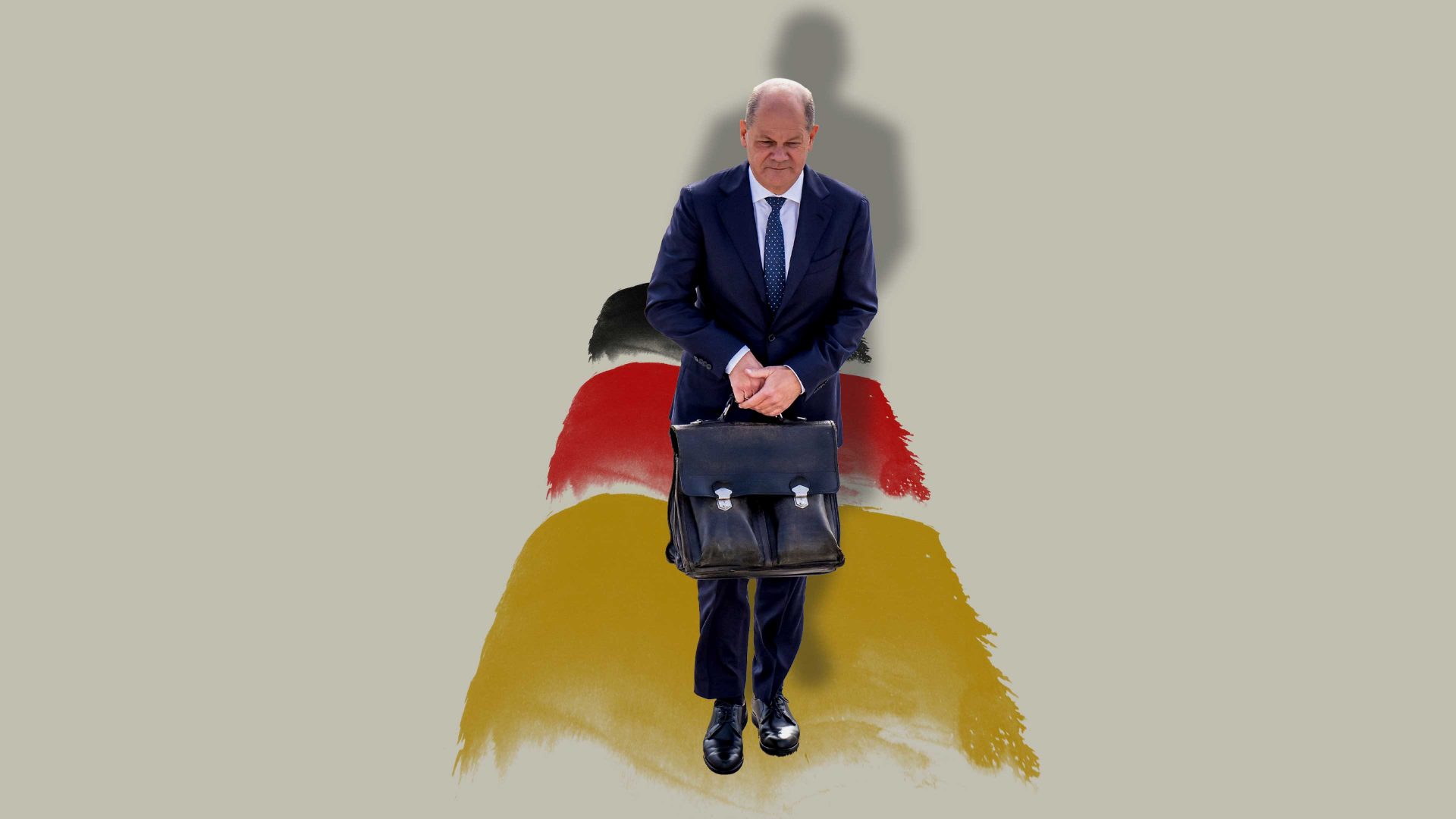Lady Judith McAlpine, the former fashion model and widow of the construction tycoon Sir William McAlpine, emerged last weekend as the leader of a madcap plot to reinstate Boris Johnson as prime minister. Putting to one side the obvious difficulties – the fact that Johnson isn’t a sitting MP not least among them – it may well be that the heiress to a £200m fortune isn’t the best possible face to lead a rebellion that the general public would readily get behind.
Anyone who has followed her ladyship on the X social networking site, where she describes herself as a “mad redhead”, will also be only too well aware that her adoration of Johnson puts even Nadine Dorries to shame. Her posts include: “Just to be clear: I LOVE Boris and his brain”, “Keep it up Boris: we are all behind you XXX, Judy McA”, “Boris, you are doing such a good job. I thought of knitting you earmuffs to keep out the unwanted noise…”, “Boris will survive despite that hate campaign”, “Stop bashing Boris” and the immortal “Boris is not devious”.
Well, you get the idea. She also agreed with Countess Bathurst, a former high sheriff of Gloucestershire, that it was vulgar to make fun of Donald Trump when he lost the presidency. Lady McAlpine wasn’t having any truck, either, with Sorcha Ní Nia, an Irish X user who’d had the temerity to criticise the royal family. “I assume you are young and foreign,” Milady replied.
Although most businesses have been scrambling to embrace the commercial opportunities of AI, the Daily Mail’s owner, Lord Rothermere, has long been something of a stick-in-the-mud. In an interview just before Christmas, his lordship said that AI represented nothing less than an “existential threat to democracy”.
Mandrake hears that Rothermere and his most senior lieutenants see the new technology more as an existential threat to MailOnline, which, even before it was introduced, was struggling against increasing competition and the departure of its driving force, Martin Clarke. “What is MailOnline but a site for the latest news harvested from other sites all over the world?” one of Rothermere’s serfs tells me. “It’s dawned on his lordship that’s a trick AI can pull off for just about anyone, anywhere, if that’s what they want, so what will the point of MailOnline be going forward?”
He added that just as the Mail group was slow to grasp what the internet meant for the newspaper industry – a quarter of a century ago, the Mail’s editor, Paul Dacre, retorted “bollocks dot com” to anyone who told him it represented the future of newspapers – it seems equally wrongfooted by AI.
“In the glory days of this group we had visionaries like David English embracing every new innovation and being quick to involve us in pioneering operations like Teletext,” he adds. “These days innovation always seems to take us by surprise, and we at first rubbish it, and then belatedly and reluctantly adopt it.”
In a faintly hysterical interview with the Times, Rothermere had said: “It’s all very well to talk about Britain being a leader in AI, and I think that’s fantastic, but there are huge consequences to this technology. And it’s not just the danger of ripping the newspaper industry apart, but also ripping other industries apart, all the creative industries. How many jobs are going to be lost? What’s the damage to the economy going to be if these rapacious organisations can continue to operate without any legal ramifications?”
At a star-studded tribute to the late Bill Kenwright held at the London Palladium last weekend – featuring, among so many others, Sir Ian McKellen, Dames Judi Dench and Vanessa Redgrave, Barry Manilow and John Travolta – many were asking why the impresario was never knighted.
Rival producer Nica Burns even voiced the obvious question about a man who made a huge contribution to business and football – as Everton chairman – and many good causes, such as helping victims of the Hillsborough disaster.
The lifelong Labour voter picked up a CBE in 2001 during Tony Blair’s time in office, and I gather the intention had been to follow it up later with a knighthood, but Labour’s prolonged period in the political wilderness – and the Tories’ mean-spiritedness – meant it never happened.
Mandrake’s disclosure the other day that Sir Ed Davey had registered £25,000 worth of freebies from Francesco Mazzagatti prompted a flurry of emails from the oil and gas tycoon’s company, Viaro, which has interests in drilling in the North Sea.
The Lib Dem leader has also been spurred into action. Breaking off from prepping for his appearance before the Post Office inquiry in July, he has amended his entry in the register of MPs’ interests, limiting the hospitality he received to just a single seat rather than the 10 he initially admitted to.
For good measure, he also switched the donor from Mazzagatti to Viaro. The cost of the solitary ticket at the gala ball Sir Ed attended as Viaro’s guest? A cool £2,500. The cost to Sir Ed’s reputation as an eco-warrior? That goes unrecorded.
Michael McManus’s new play, Party Games!, envisages a centrist coalition taking charge of the country after a hung parliament.
The playwright knows a thing or two about politics – he once worked at Conservative Central Office, was a special adviser to a number of Tory ministers and latterly headed Sir Edward Heath’s office in his post-Downing Street years. I ask if he could envisage his plot happening in real life. “I think with both parties showing the potential to fracture, anything is possible,” he says. “What could change everything overnight would be if sensible, centrist politics could only find a genuinely charismatic face and voice.”
Heath was of course the great architect of the UK joining the EU, and I wondered what his old boss would make of the way things have unfolded. “Ted privately always predicted Brexit because he could see that very few politicians were brave enough to talk about the benefits we were getting as a member,” he says. “He would be unfazed and would just get his head down and try to fix it.”
The cod-Latin “No Bloody Panico” was used by Boris Johnson during the Brexit wars that ended the premiership of his predecessor, Theresa May, who is departing as an MP at the next election. Now Bloody Panico! is the title of a book by political commentator Geoffrey Wheatcroft, out at the end of May, chronicling the disasters in the Tory Party since 2022. Wheatcroft says his work was written “mainly off the top of my head”, which rather sounds like the approach the former prime minister took to politics.
In fact, the phrase Bloody Panico originated with a crusty old Tory MP, Sir Morgan Morgan-Giles, during a Commons debate in 1972 about entering the Common Market. He jumped up and spouted: “Pro bono publico; no bloody panico”, before sitting back down.




